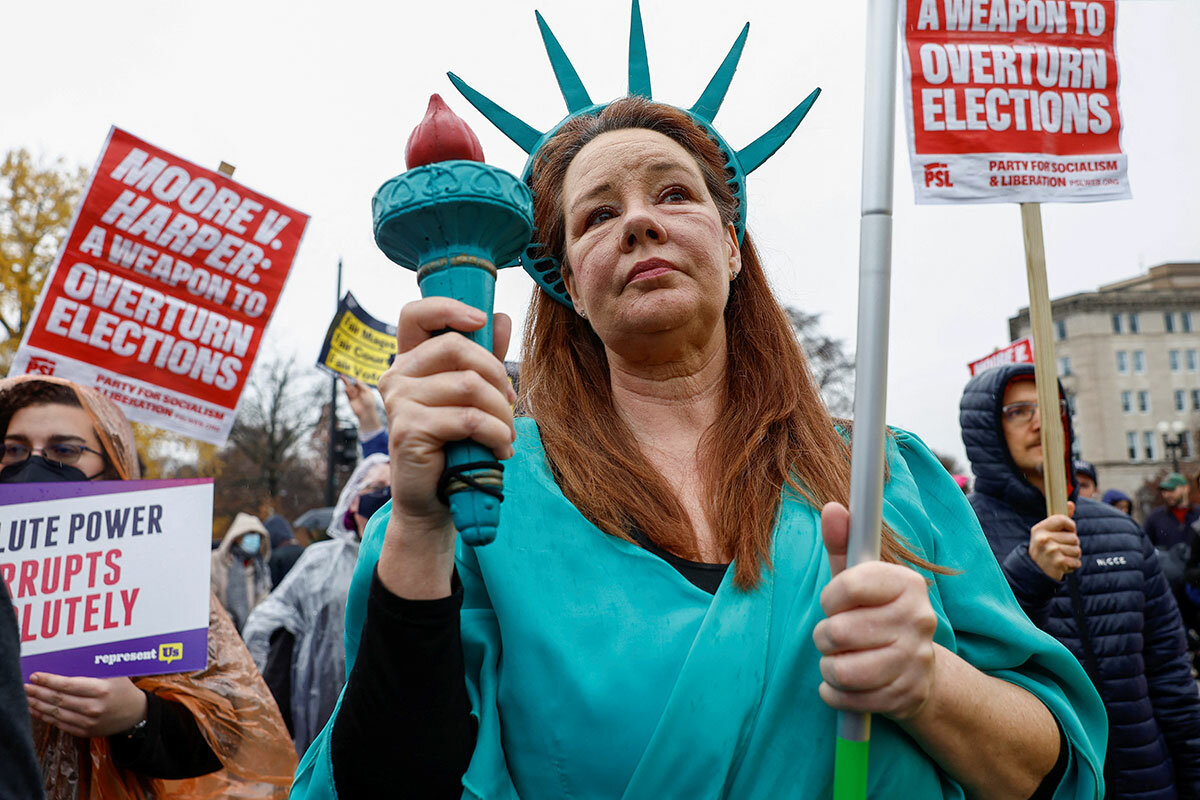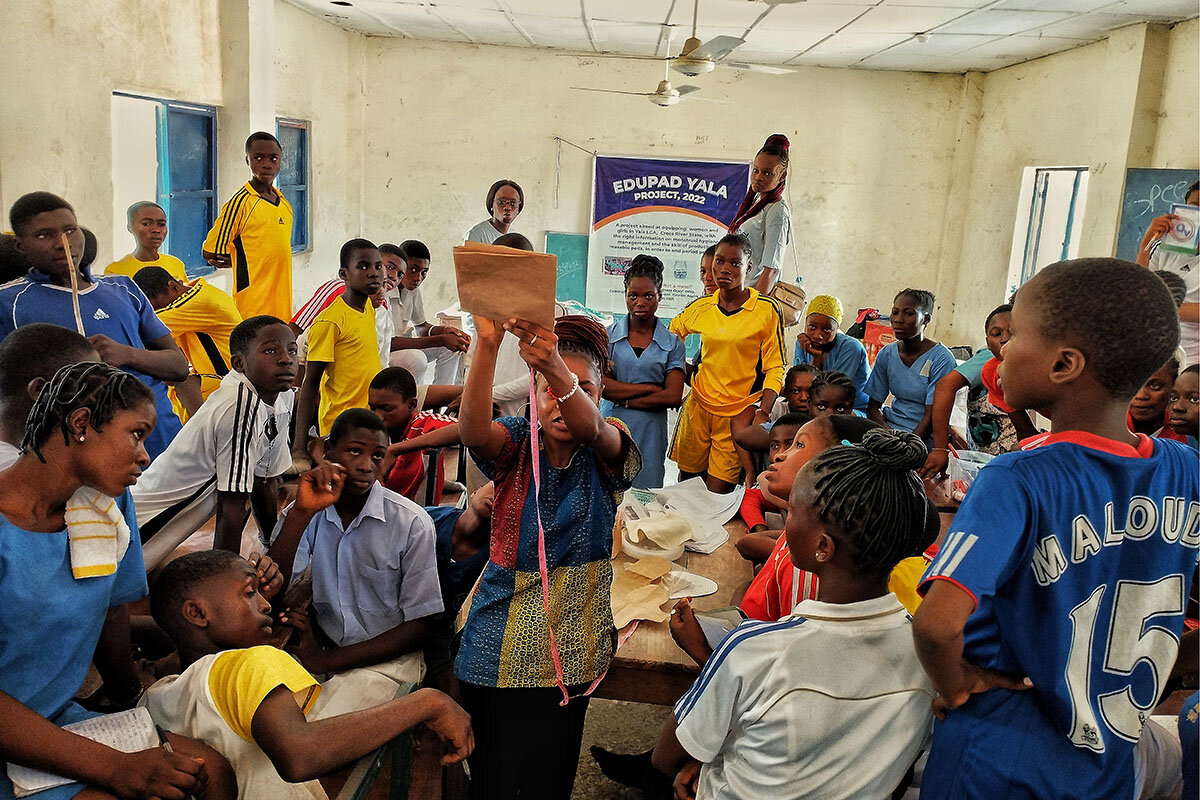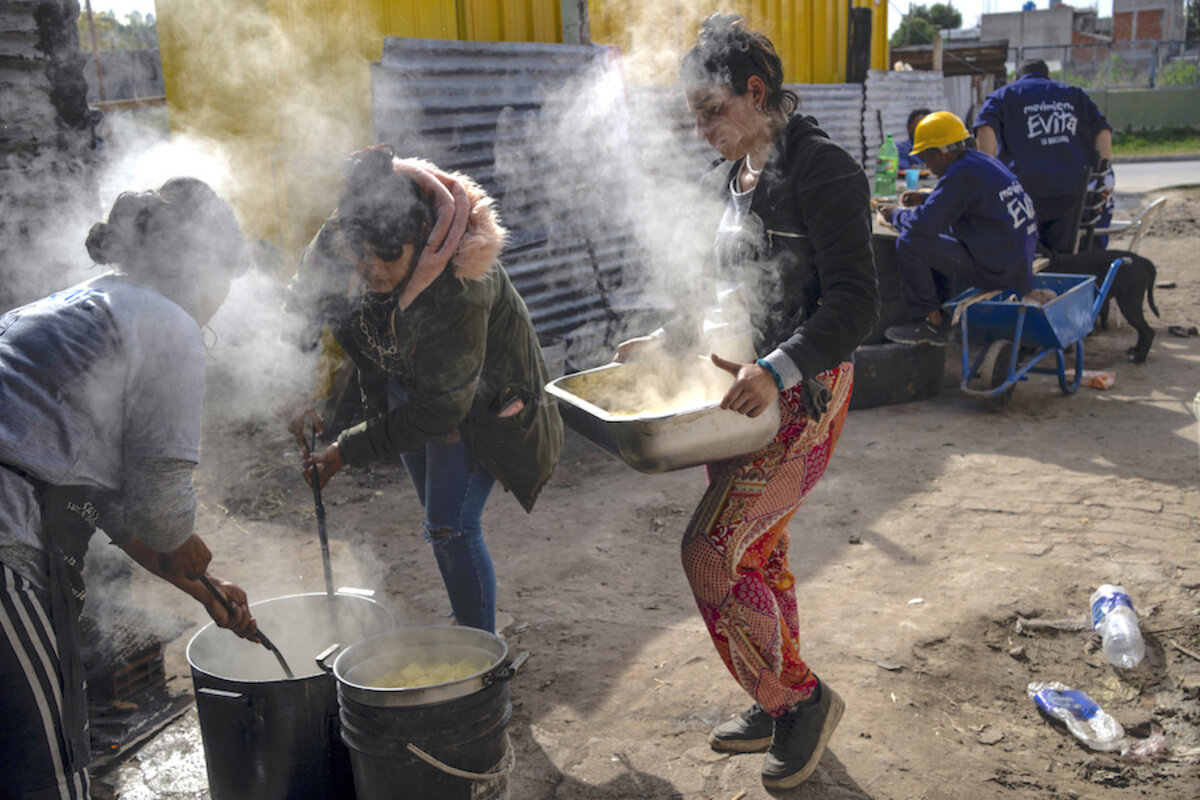The U.S. Supreme Court heard arguments in a pivotal case that could make huge waves in how states govern elections. But some justices appear skeptical of throwing another boulder into the electoral pond.
Monitor Daily Podcast
- Follow us:
- Apple Podcasts
- Spotify
- RSS Feed
- Download
 Mark Sappenfield
Mark Sappenfield
In the end, hope was the hardest thing to hold on to.
Basketball superstar Brittney Griner was detained by Russia nearly 10 months ago. The sentence for the discovery of hashish oil on her vaping pipes was nine years at a prison that, according to a 2017 Russian report, engaged in torture and slave labor.
By October, her wife, Cherelle Griner, told “CBS This Morning,” “She’s very afraid about being left and forgotten in Russia.” In November, she told “The View” that her wife confessed to her: “I’m really just trying to hold on to the last little bit of you I can remember.”
Today, Brittney Griner is heading home. She was part of a prisoner exchange, with the U.S. freeing Viktor Bout, an arms dealer convicted of conspiring to kill American officials.
In such fraught negotiations, it can be hard – even counterproductive – for a government to be open. The Biden administration repeatedly said freeing Ms. Griner was a top priority, yet questions lingered. What if she were a male sports star? Was there prejudice because she is a member of the LGBTQ community?
But people did remember. Her number was on the court at every Women’s National Basketball Association game. At the Golden State Warriors’ championship ring ceremony in October, Stephen Curry said, “Brittney Griner’s birthday is today. ... We want to continue to let her name be known.” Cherelle Griner worked tirelessly to keep her wife’s name in the spotlight.
Now that spotlight turns to Paul Whelan, another American authorities say is falsely imprisoned in Russia. “We are not giving up. We will never give up,” President Joe Biden said. The challenge is more difficult, with Russia classifying his case differently. Yet in some ways it is the same.
The struggle, day by day, is not to lose hope.










